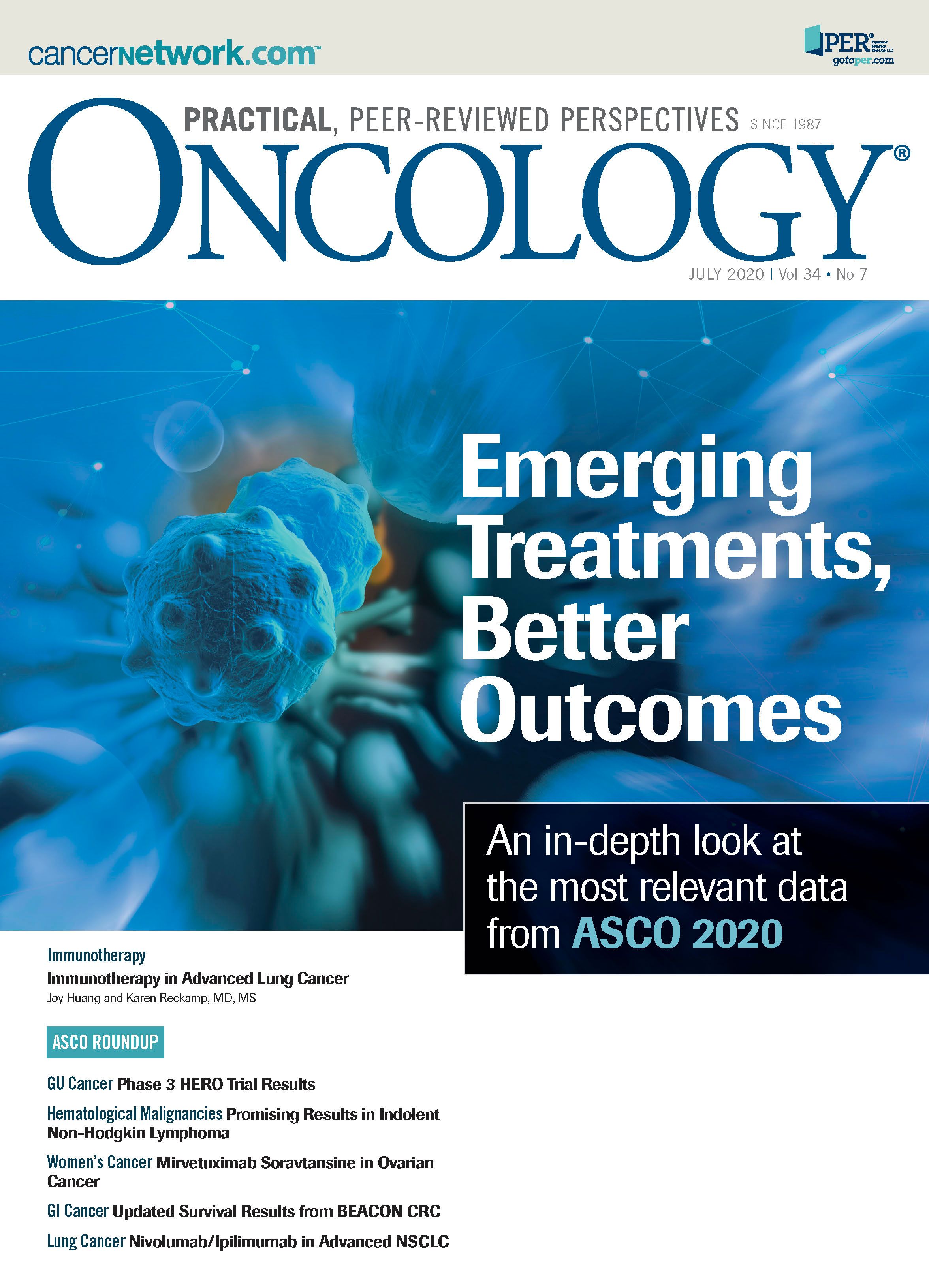COVID-19 Pandemic and Its Effects on Cancer Care, Both Good and Bad
ONCOLOGY® Editor in chief Julie M. Vose, MD, MBA discusses both the positive and negative changes that have come about because of the COVID-19 pandemic.
Now that the world has been dealing with the coronavirus disease 2019 (COVID-19) pandemic for several months, we have learned so much. Some of the modifications we have made have been “good” and will hopefully help oncology care, education, and research going forward. Here are some of the issues and changes that the pandemic engendered:
Good
1. Telehealth video visits: We all hope the reimbursements will remain so we can continue to use these when the clinical situation is appropriate.
2. Virtual meetings: These have gone better than expected (except for a few website issues) and in some ways have been very helpful, as you can see more lectures and go through them as time permits. I hope these will be used more in conjunction with future in-person meetings.
3. Meetings, lectures, and tumor boards held by Zoom and WebEx: All have increased the ability of physicians to attend safely from different locations.
4. Beneficial clinical trial modifications: These include phone or electronic consents, allowing laboratory or radiology testing closer to home, and shipment of investigational oral agents directly to the patient.
5. We’ve seen emergency, record-speed approvals of COVID-19 therapy trials by the FDA, National Cancer Institute, and local institutions.
Bad
1. Decreased cancer screening testing: It was stopped during the pandemic and now, although started again, some patients are afraid to come in to get these tests done. This may ultimately lead to diagnosing cancers at later stages, making them more difficult to treat.
2. Postponing some cancer surgeries: Some patients may have developed disease that is more extensive by the time surgery is performed, which could lead to worse outcomes.
3. Phase 1 clinical trials were stopped in some centers, which may slow down progress in cancer research.
4. Because higher-risk clinical trials were closed during the pandemic, there will be extra administrative work for staff members working within the clinical trials system and institutional review boards when reopening does occur.
5. We’ve had decreased ability to deliver state-of-the-art cancer care to some patients because of capacity issues.
6. Financial stress on the health care system has arisen because of decreases in frequency of standard health care procedures and increased infrastructure costs.
I hope that some of the “good” lessons learned during this difficult time can remain with us going forward into the next phase of oncology care. The COVID-19 pandemic is likely not to be the last pandemic, and we need to learn from our efforts over the past few months.

Oncology Peer Review On-The-Go: Minority Treatment Disparities and Clinical Trial Enrollment
July 6th 2020The first episode of CancerNetwork's podcast Oncology Peer Review On-The-Go explores disparities in cancer care treatment among minorities and the significance of a representative sample in clinical trials.